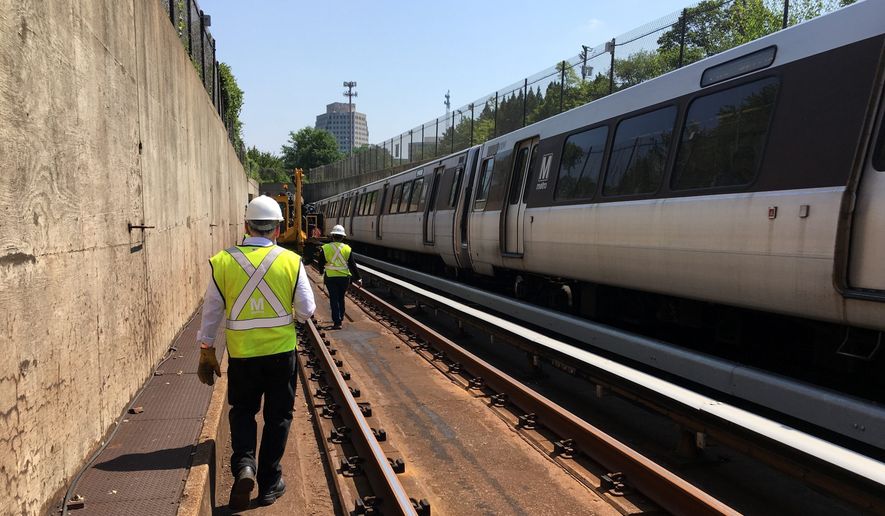The D.C. Council is set to consider a measure that would create a federally mandated safety oversight commission for Metro’s subway in partnership with Maryland and Virginia.
Dubbed the “Metrorail Safety Commission Interstate Compact,” the legislation would authorize a group of oversight officials to devise and enforce Metro safety rules, conduct inspections, impose citations and order the transit agency to prioritize funding on “safety-critical” projects.
The commission must be approved by all three jurisdictions. The D.C. Council will convene a public hearing on the measure Tuesday and take up the legislation for vote this fall. Virginia and Maryland plan to vote during the 2017 legislative session.
The leaders of all three jurisdictions have signaled their full support for the new commission.
“This is an important step toward improving the safety and reliability of metro,” said D.C. Mayor Muriel Bowser, a Democrat. “This was an idea born out of collaboration and coordination between D.C., Maryland and Virginia. Once again, the DMV has shown that when we come together as a region, we get things done.”
Maryland Gov. Larry Hogan, a Republican, said the collaboration on oversight is “crucial to ensure the safety and security of [Metro].”
Virginia Gov. Terry McAuliffe said the commission will provide stronger safety protections for the 300,000 Virginians who ride Metro daily.
“By establishing the Metro Safety Commission and collaborating with our partners in Maryland and the District of Columbia, we are putting in place the necessary policies and oversight to ensure that safety continues to be the top priority,” said Mr. McAuliffe, a Democrat.
The Washington Metrorail Safety Commission will consist of six members — two from each jurisdiction — and will be funded independently of Metro by the jurisdictions. Maryland, Virginia and the District will have to agree on funding levels and pay an equal share of the contributions.
The commission comes after a year of oversight by the Federal Transit Administration. Metro safety had been monitored by the Tri-State Oversight Committee, a panel will little authority to enforce regulations.
After years of problems including track fires, crashes and smoke incidents on Metro, the FTA took over safety reviews last fall.
Once approved, the commission will take over safety oversight from the FTA, wielding more power than the Tri-State Oversight Committee.
The commission likely will be welcomed by transportation advocates who see it as a way to keep safety oversight local, but there are a few measures in the legislation that have rankled advocates of open government.
It will not be subject to Freedom of Information Act requests or open meeting laws, according to the draft legislation. The body will adopt its own policies, independent of those in Maryland, Virginia and the District.
And the “commission may withhold from public view the contents of any investigation report prepared, reviewed, or adopted,” the draft states. Its reports will be released only to the mayor and the governors — not to the public.
That language caught the eye of several groups including the D.C. Open Government Coalition, the Virginia Coalition for Open Government and the Maryland, Delaware, D.C. Press Association.
In an Aug. 17 letter, those three groups said the legislation “as currently written does not guarantee public participation in the oversight process.”
“There is no mandatory right of access to meetings or records, nor is there any meaningful enforcement mechanism,” the groups wrote. “We are concerned that the result would be transparency only when it suits the commission, not when it is necessary to serve the public interest. This carries the potential for continued safety issues, and a lack of public confidence in the process.”
The groups said they researched similar interstate compacts around the country including the Port Authority of New York and New Jersey, the Delaware River Port Authority and the Delaware River and Bay Authority and found “a strong public right of access” among those commissions.
• Ryan M. McDermott can be reached at rmcdermott@washingtontimes.com.




Please read our comment policy before commenting.